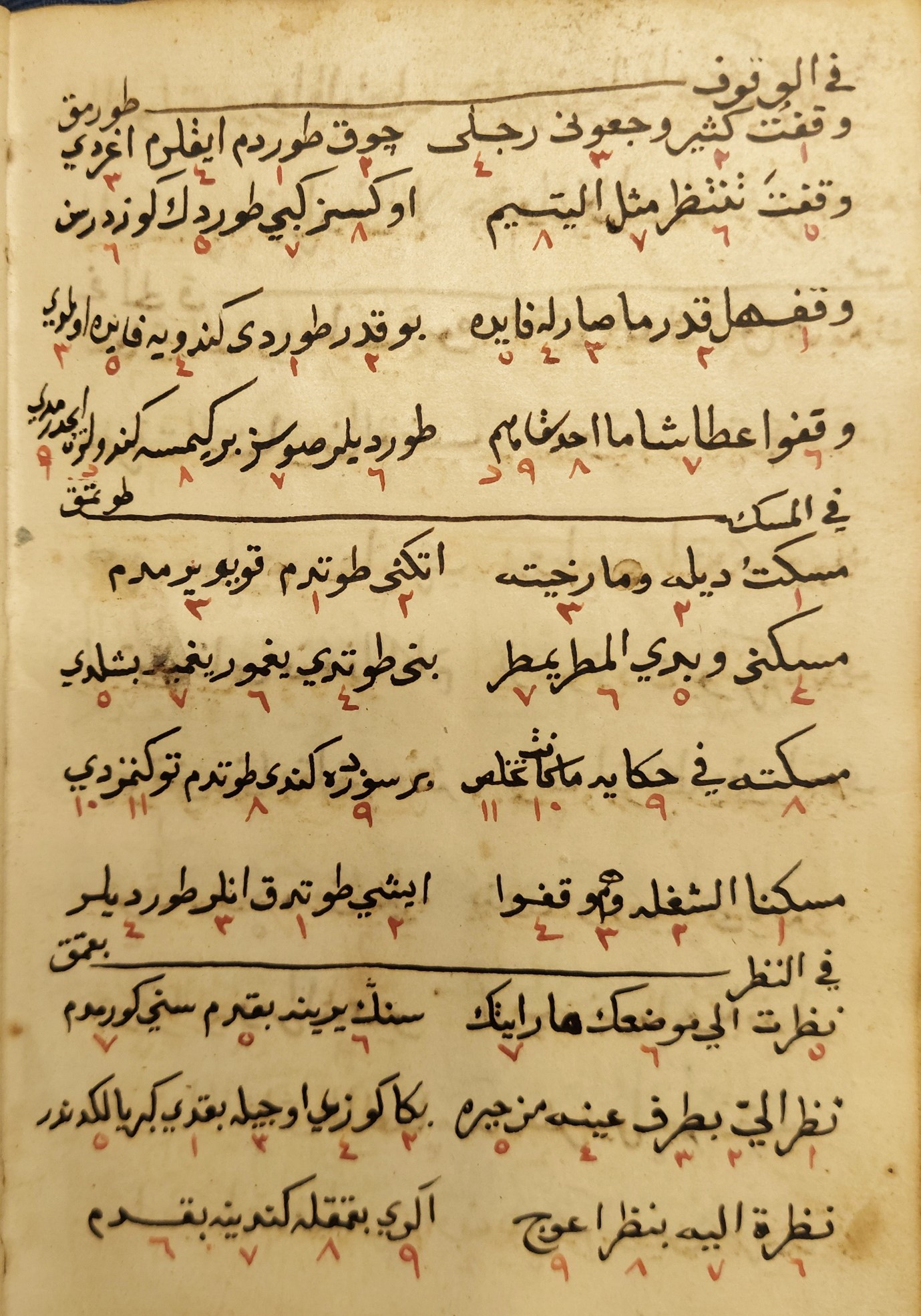Among the holdings of the Norwegian National Library, there is a group of “Oriental” manuscripts of varying provenance, types, and content. This lecture presents a 104-pages tercüman/turjumān, an (Ottoman)Turkish-(Levantine)Arabic phrasebook from 1766, entitled Safīnat al-maṣādir (lit., ‘The ship of sources/origins’). Its anonymous author seems to have been a (tissue?) merchant who had to deal with Turkish-speaking colleagues, agents, and workers. The booklet’s main section contains “useful phrases”, arranged under headings like ‘to know’, ‘to buy’, ‘to beat’, ‘to smell’, etc. (hence probably the title, as maṣādir also means ‘grammatical infinitives’), etc., giving sentences in Ottoman Turkish on the left and a rendering in Levantine “middle Arabic” for each on the right. The content is highly interesting from both a cultural-historical and a linguistic perspective. On the one hand, it grants insight into the everyday life of a merchant running his affairs in mid-18th century Ottoman Syria, into economic practices, living conditions, human interaction, trade ethics, and much more. On the other hand, the bi-lingual text reflects everyday language usage from a little-documented period.
About the lecturer
Stephan Guth studied “Islamwissenschaft”, Modern German Literature, and Philosophy in Bonn and Tübingen. Graduated from Bonn University with MA and PhD both on Modern Arabic Literature, and from Bern Univ. (Switzerland) with a post-doctoral thesis on the comparative history of the Arabic and Turkish novel. While continuing in the field of Middle Eastern and Comparative literatures until now, he developed additional interest and expertise in the etymology of Arabic (where he initiated an online etymological dictionary = work in progress) as well as in Conceptual History, esp. in the Nahḍa period (a book assembling his numerous contributions to this field is under preparation).

